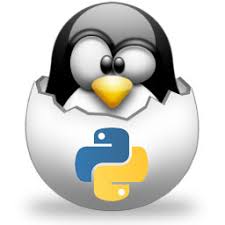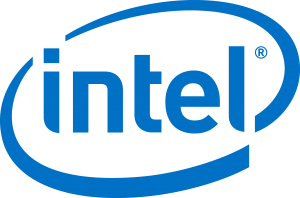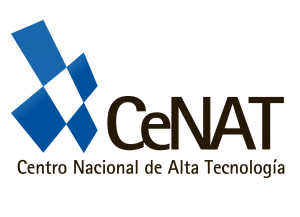
January 28th to February 1st, 2019
Costa Rica National High Technology Center
Dr. Frankiln Chang Díaz building
1.3 km North of the US Embassy
Pavas, San José, Costa Rica
Topics:
- Shared-memory Programming
- Distributed-memory Programming
- Performance Analysis
High Performance Computing (HPC) is markedly changing the way we solve challenging problems in science, engineering, and society. From complex simulations to better understand the impact of climate change to sophisticated models to design effective drugs, HPC is a fundamental tool in accelerating time-to-discovery.
Building on the success of previous editions, the third installment of the Costa Rica High Performance Computing School (CRHPCS) aims at preparing students and researchers to introduce HPC tools in their workflows. A selected team of national and international experts will teach sessions on shared-memory programming, distributed-memory programming, and performance analysis.
We expect to continue with our mission to catalyze innovation through HPC with this event. Take advantage of this opportunity and join us for an exciting training.
Esteban Meneses, PhD
Advanced Computing Laboratory Director
Costa Rica HPC School General Chair
Instructors
Judit Gimenez

Biography: Judit Gimenez is a researcher at Universidad Politécnica de Cataluña/Barcelona Supercomputing Center (UPC/BSC). She has been working in the area of parallel computing since 1989 when she obtained her Computer Science degree. Her first job was doing the development and support of parallel systems based on transputers. She has been involved in technology transfer activities participating in different initiatives to promote the usage of parallel computing by European SMEs. She is responsible for the development and distribution of performance tools for the last 17 years, being the leader of the Performance Tools team in the Computer Science department at BSC since its creation. She actively participated in the POP Center of Excellence (EU H2020 project) promoting the performance and optimization as the path to improve the productivity. Judit will be in charge of teaching the Performance Analysis and Tools sessions.
Sergio Nesmachnow

Biography: Sergio Nesmachnow is a professor at the Centro de Cálculo, Instituto de Computación, Facultad de Ingeniería, Universidad de la República, Uruguay. His main research topics are: scientific and high performance computing, distributed computing, metaheuristics and optimization problems as well as data processing and smart cities. Sergio is editor-in-chief of the International Journal of Metaheuristics and has worked as an invited editor for the Cluster Computing and the Computer Journals. He is also a recipient of the Caldeiro Barcia award from PEDECIBA for young researchers. He was also appointed as the Uruguayan researcher with more Scopus publications in 2014. and was also recognized with the Elsevier award for academic excellence for the greatest number of publications in the area of Computer and Information Sciences in 2018. Sergio will be in charge of teaching the Distributed-memory Programming sessions.
Diego Jiménez

Biography: Diego Jiménez is a computer engineer graduated from the Costa Rica Institute of Technology. He currently works at the Advanced Computing Laboratory at CeNAT, where he conducts research in scientific computing and high performance computing. He has worked in projects of computational neuroscience and plasma physics applying parallel programming techniques to accelerate simulations. He has also studied the communication patterns present in large-scale MPI applications and their mappings to common interconnection topologies in high-performance computing. His research interests are: parallel programming paradigms and high performance computing. Diego will be in charge of teaching the Shared-Memory Programming sessions.
Marco Villalta

Biography: Marco Villalta Fallas did his undegraduate studies in Electrical Engineering in the University of Costa Rica. He is currently finalizing his master’s degree also in Electrical Engineering. He works as a researcher and professor in the same university. He is an active member of the Pattern Recognition and Intelligent Systems Laboratory (PRIS-Lab). He focuses on topics like automatic soccer players tracking and HPC.
Emmanuel Vargas

Biography: Emmanuel Vargas Blanco got his bachelor’s and licentiate degrees in Electrical Engineering from the University of Costa Rica. He currently works as an Embedded Software Engineer for a multinational corporation where he develops software drivers for networking equipment. His graduation project, developed in Pattern Recognition and Intelligent Systems Laboratory (PRIS-Lab), centered on image processing. Emmanuel works at the lab in workshops and as a consultant in matters related to GNU/Linux.
Speakers
Francisco Siles Canales

Biography: Dr. rer. nat Francisco Siles is a professor and researcher in Electric Engineering, Computer Science and Biocomputing specializing in Pattern Recognition, Machine Learning and Artificial Intelligence. He has also worked in topics like Digital Signal Processing, Biomedical and Biological Information, Intelligent Systems Development for Cognitive Robotics, Sports and Biomechanics analysis and interpretation as well as hybrid CPU/GPU platforms for Scientific and High Performance Computing.
Jaime Guell (Intel)
Biography: Jaime Guell is an Electrical Engineer graduated from the Tecnológico de Monterrey. He currently works as an HPC-platforms analysis engineer at Intel, where he identifies possible improvement areas of an HPC cluster through detailed analysis of software workloads and the construction of probabilistic and predictive behavioral models.
Jose Somarribas (Intel)
Biography: Jose Somarribas is a Computing Engineer and a graduate student pursuing his master’s degree in Computer Science at the Tecnológico de Costa Rica. In Intel, Jose works as a platform analyst engineer, focusing on the competitive analysis of GPUs in graphical applications. He develops predictive behavior models and the comparative analysis of different hardware platforms.
Agenda
| DAY & TIME | Monday 28th | Tuesday 29th | Wednesday 30th | Thursday 31st | Friday 1st |
| 8:00am – 8:30am | Registry | ||||
| 8:30am – 10:00am | Inauguration | Distributed-memory Programming | Sponsor Talk: Software Optimization using Intel AVX | Sponsor Talk: IBM | Performance Analysis Tools |
| Keynote Presentation: Dr. rer. nat Francisco Siles | Distributed-memory Programming | Performance Analysis Tools | |||
| 10:00am – 10:30am | Morning Break | ||||
| 10:30am – 12:00pm | Kabré Supercomputer Tutorial | Distributed-memory Programming | Distributed-memory Programming | Performance Analysis Tools | Performance Analysis Tools |
| 12:00pm – 1:00pm | Lunch | ||||
| 1:00pm – 3:00pm | Shared-memory Programming | Distributed-memory Programming | Distributed-memory Programming | Performance Analysis Tools | Performance Analysis Tools |
| 3:00pm – 3:30pm | Afternoon Break | ||||
| 3:30pm – 5:00pm | Shared-memory Programming | Distributed-memory Programming | Distributed-memory Programming | Performance Analysis Tools | Performance Analysis Tools |
Evaluation
Pre-School
We will offer onboarding sessions for those who would like to sharpen their Linux and C skills. Attendance to the pre-school is optional. The onboarding sessions will take place the following days:
Introduction to Linux tools: Thursday January 24, 2019, 8:30am-5:00pm, CeNAT
Introduction to C Programming Language: Friday January 25, 2019, 8:30am-5:00pm, CeNAT
Registry
Tuition fee
Participation is free. There are no tuition costs associated with participating in this school for those affiliated to CONARE institutions.
Maximum quota
The maximum quota is 50 participants.
Inscription
The following form has to be fully filled before January 13, 2019. Accepted participants will be notified via email on January 14, 2019.
Important dates
Start of the application process to the School: November 26, 2018.
Closure of the application process to the School: January 13, 2019.
Notification of acceptance/rejection to the School: January 14, 2019.
Requirements
To be a student, professor, or researcher at any public university (UCR, TEC, UNA, UNED, UTN), from CONARE or any of its ascribed programs: CeNAT, PEN and SINAES.

Have an intermediate English level (reading and listening). Some presentations and exercises may be in English.

Have intermediate programming skills (C/C++ desired, Python acceptable) and intermediate Linux handling.

Sponsors


Intel and the Intel logo are trademarks of Intel Corporation in the U.S. and/or other countries.
Organizers
The Advanced Computing Laboratory (CNCA) at Costa Rica High Technology Center (CeNAT) is a multidisciplinary space where scientific discovery is accelerated through an advanced computing infrastructure. This infrastructure includes not only specialized and updated hardware, but also a set of efficient applications and well-trained staff in order to take advantage of all the technology. This allows CNCA to work in the main dimensions of research, project development, training, and services provision.
The thematic Iberian-American Network for High Performance Computing (RICAP) is presented to provide the region with a strategic infrastructure in the field of high performance computing from an advanced architecture that includes both High Performance Computing (HPC) and High Throughput Computing (HTC). One goal of the RICAP is the promotion of knowledge transfer and the impact of RICAP through the provision of tutorials and seminars for administrators and end users with the latest technologies in the fields of HPC and HTC; and, the collaboration with other national and regional initiatives (RedCLARA, H2020 and others). This school has been partially carried out with resources provided by the CYTED cofunded Thematic Network RICAP (517RT0529).
The Pattern Recognition and Intelligent Systems Laboratory (PRIS-Lab) is part of the School of Electrical Engineering at UCR. We seek the generation of scientific research and technological innovation, towards integration between the academic community, the government, the productive sector, the civil society and the environment, to improve people’s quality of life. The specific interests of PRIS-Lab are mainly (but not limited to) pattern recognition, intelligent systems, machine learning, data mining, digital signal processing, digital image processing, motion capture, biocomputation, abstract data structures, algorithms and programmi ng.
Aknowledgements
The logo of Costa Rica HPC School was designed by Ing. D.I. María Cristina Vargas Del Valle.
Location



